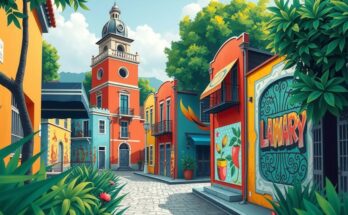The Undersecretariat of Cultural Heritage in Chile has successfully secured a UNESCO fund aimed at preserving the photographic, audiovisual, and sound archives from the era of dictatorship. The initiative, titled “Strengthening and Protecting the Memory of Chilean Resistance through the Digitisation and Preservation of the National Library’s Archives from the Dictatorship Period,” represents Chile’s inaugural project to receive international funding for this crucial cause.
This funding will empower the National Library of Chile to preserve and digitise four vital archival collections that offer insights into the country’s cultural movement during the dictatorship. These collections are particularly susceptible to deterioration, especially sound recordings and moving images, which face the threat of technological obsolescence.
The archival collections set for preservation encompass:
1. Colour slides from Salvador Allende’s government, donated by American photographer Michael Mauney.
2. The personal archive of visual artist Vicente Ruiz.
3. Historical documentaries from the Audiovisual Archive.
4. Open-reel tape recordings of Chilean musicians from the Alerce record label fund.
Once successfully digitised, these invaluable archives will be accessible on the National Library’s digital platforms, significantly enhancing public access to historical documents.
Esther Kuisch Laroche, Director of UNESCO’s Regional Office for Latin America and the Caribbean, expressed the project’s significance, stating, “This project underscores the importance of international cooperation in the preservation and protection of cultural heritage. With a financial contribution of $50,000 from UNESCO, this valuable photographic and audiovisual collection will be digitised using cutting-edge equipment, which will remain available to Chilean institutions.”
Carolina Pérez Dattari, Undersecretary of Cultural Heritage, stated, “This is the first assistance fund we have secured in this area, marking our third UNESCO grant for heritage protection. The project integrates into the National Digital Heritage Strategy 2024-2029, reinforcing our commitment to safeguard cultural heritage.”
This initiative, estimated at a total cost of $104,352, is designed to be carried out over 18 months, in collaboration with the National Library of Chile and the UNESCO Regional Office in Santiago. The project aims to enhance the library’s digitisation capabilities and establish a Risk Preparedness Plan, serving as a model for other institutions.
Soledad Abarca, Director of the National Library, highlighted the critical importance of this initiative in preserving unique historical records and improving emergency preparedness. It strives to ensure the conservation and public accessibility of Chile’s cultural heritage, promoting broader recognition of national history.
The Undersecretariat of Cultural Heritage in Chile has secured a $50,000 UNESCO fund to digitise and preserve archival collections from the dictatorship era. These collections will be made available to the public, enhancing access to critical historical resources. The project aligns with the National Digital Heritage Strategy and aims to improve the library’s infrastructure and emergency preparedness for cultural heritage preservation.
In conclusion, the Undersecretariat of Cultural Heritage’s groundbreaking initiative to secure UNESCO funding will significantly bolster the preservation of crucial archival materials from Chile’s dictatorship era. With a focus on digitisation and accessibility, this project seeks to protect invaluable cultural heritage for future generations, ensuring that Chile’s historical records remain a vibrant part of its national memory. Through international cooperation and innovative strategies, this effort will enhance public awareness and appreciation of Chile’s rich history.
Original Source: www.unesco.org


